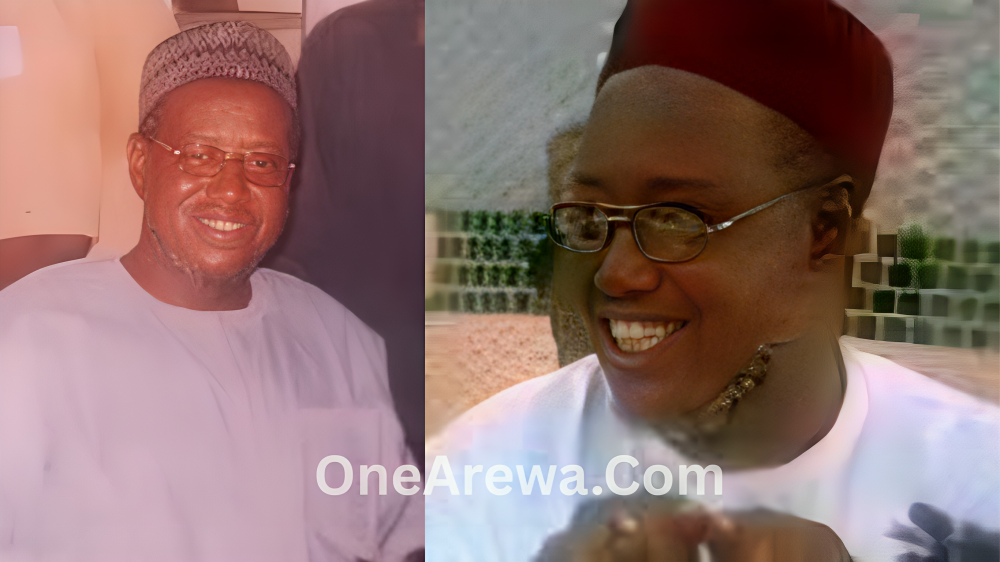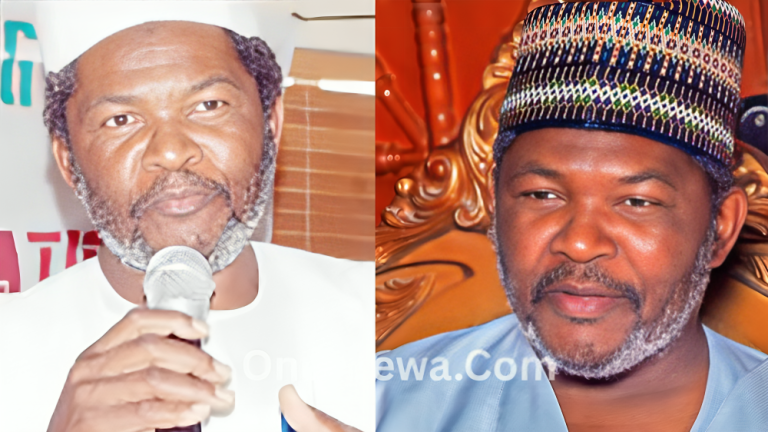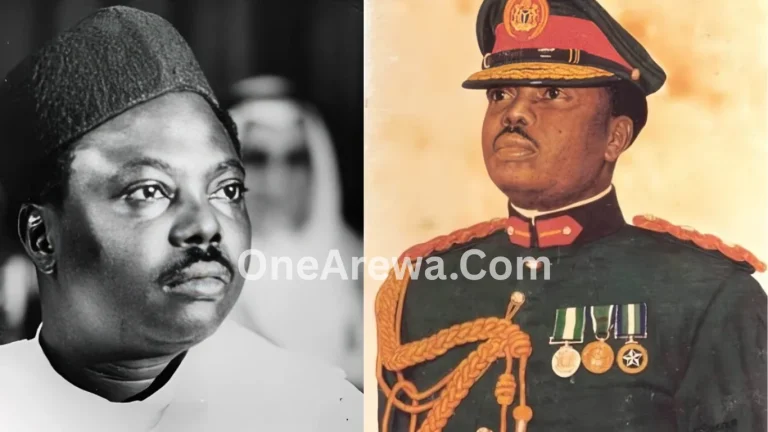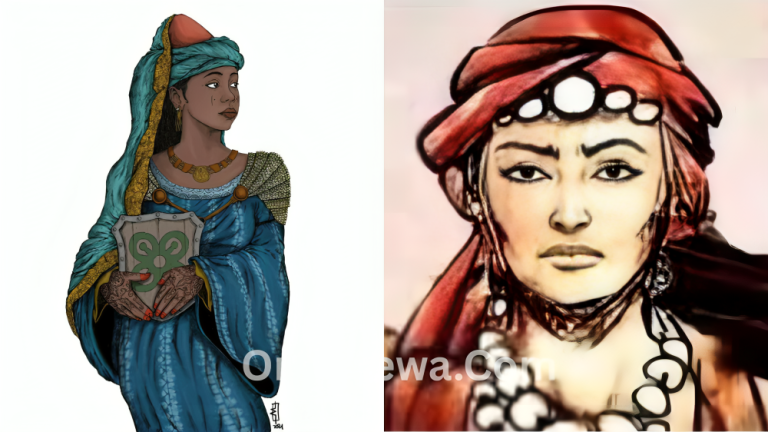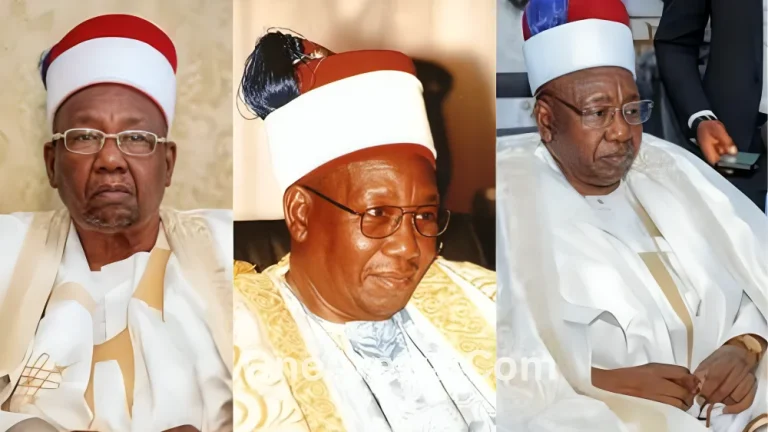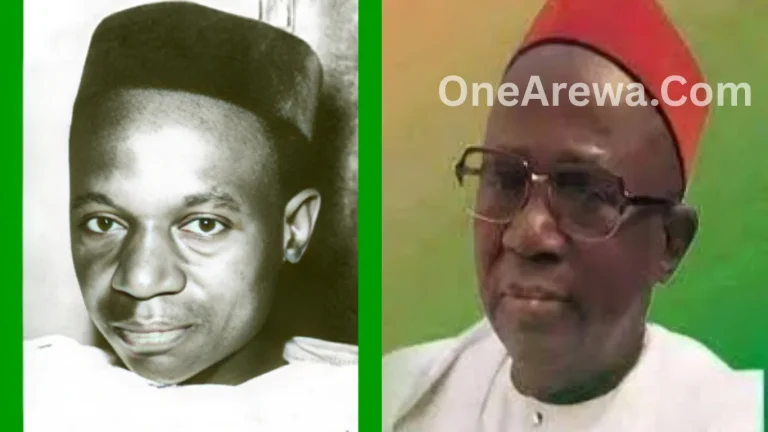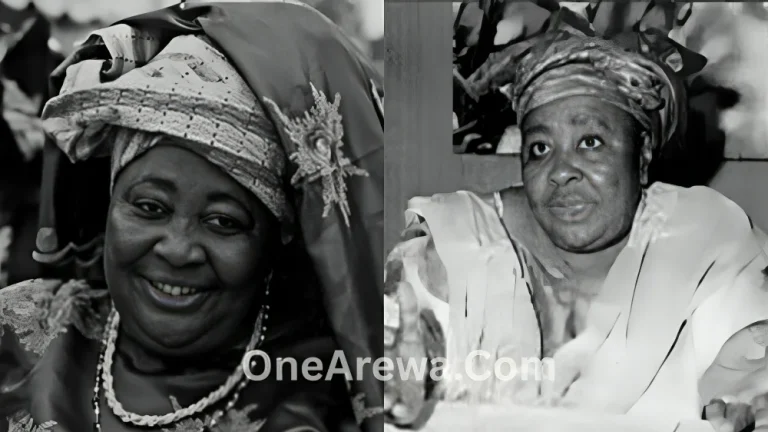Sheikh Ja’afar Mahmud Adam: Life, Legacy & Martyrdom of the Fearless Islamic Scholar
Sheikh Ja’afar Mahmud Adam: Life, Legacy & Martyrdom of the Fearless Islamic Scholar
Sheikh Ja’afar Mahmud Adam (born on February 12, 1960 – died on April 13, 2007) was a fearless and influential Islamic scholar from Dorayi, Gwale Local Government Area of Kano State, Nigeria, known for his deep knowledge of Islam, eloquent Hausa-language sermons, and uncompromising stance against political corruption, religious innovation, and extremism.
He studied at the University of Medina in Saudi Arabia, where he embraced the Salafi movement, and upon returning to Nigeria, he gained widespread fame through his tafsir sessions at Indimi Mosque in Maiduguri, especially during Ramadan, attracting thousands of listeners.
Sheikh Ja’afar openly opposed extremist groups like Boko Haram and frequently criticized government injustices, which made him a target for both political and ideological enemies.
On the tragic morning of April 13, 2007, he was assassinated during Subh prayer at Dorayi Juma’at Mosque in Kano, at the age of 47, an act believed to be politically or ideologically motivated.
His death shocked the nation, but his legacy endures through his recorded lectures, inspired students, and the millions who continue to learn from his teachings grounded in the Qur’an and Sunnah.
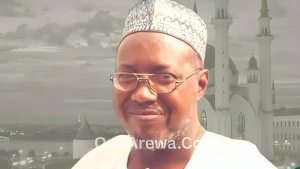
Sheikh Ja’afar Mahmud Adam Wiki Profile
| Fact | Details |
|---|---|
| Full Name | Ja’afar Mahmud Adam |
| Date of Birth | February 12, 1960 |
| Place of Birth | Dorayi, Gwale LGA, Kano State, Nigeria |
| Date of Death | April 13, 2007 |
| Place of Death | Dorayi Juma’at Mosque, Kano State |
| Age at Death | 47 years old |
| Nationality | Nigerian |
| Ethnicity | Fulani |
| Religion | Islam (Sunni, Salafi) |
| Occupation | Islamic Scholar, Teacher, Preacher |
| Alma Mater | Islamic University of Medina, Saudi Arabia |
| Known For | Tafsir in Hausa, Anti-corruption stance, Anti-extremism preaching |
| Major Teaching Location | Indimi Mosque, Maiduguri |
| Famous For | Fearless sermons, rejecting extremism, and political outspokenness |
| Legacy | Inspiring future scholars, martyrdom, recorded lectures, and the da’awah movement |
| Cause of Death | Assassination during Subh prayer |
| Marital Status | Married |
| Title by Followers | Shaheed (Martyr), Mujaddid (Reformer) |
Check Out: Sheikh Ibrahim Khaleel: The Fearless Islamic Scholar and Political Voice of the North
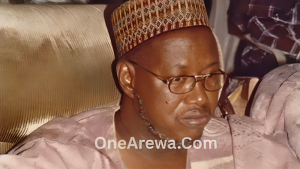
Sheikh Ja’afar Mahmud Adam’s Early Life and Islamic Education
Sheikh Ja’afar Mahmud Adam was born on February 12, 1960, in Dorayi, Gwale Local Government Area, Kano State, Nigeria, into a religious Fulani family known for Islamic scholarship and discipline.
From a young age, Ja’afar exhibited a deep passion for Islamic knowledge, beginning his Qur’anic education under his father’s guidance and later studying under local Islamic scholars in Kano.
He quickly distinguished himself as a brilliant and disciplined student, memorizing the Holy Qur’an at an early age and gaining foundational knowledge in Arabic language, Hadith, Fiqh (jurisprudence), and Tafsir (exegesis).
Driven by an insatiable thirst for knowledge, he pursued advanced Islamic studies and was eventually admitted to the Islamic University of Medina in Saudi Arabia, one of the world’s most prestigious centers for Islamic learning.
There, he studied under prominent Salafi scholars and deepened his understanding of Islamic theology, law, and the principles of Ahlus-Sunnah wal Jama’ah (the people of the Sunnah and the community).
His time in Medina greatly shaped his scholarly outlook and solidified his commitment to the Salafi school of thought, which emphasizes strict adherence to the Qur’an and Sunnah as practiced by the early generations of Muslims (Salaf al-Salih).
Upon completing his studies, Sheikh Ja’afar returned to Nigeria equipped with deep knowledge, clarity of thought, and a mission to reform society through authentic Islamic teachings.
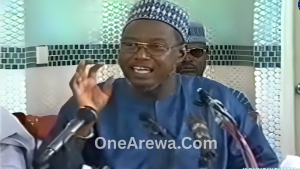
Sheikh Ja’afar Mahmud Adam’s Rise to Fame and Influence
After returning from the Islamic University of Medina, Sheikh Ja’afar Mahmud Adam quickly gained recognition across Northern Nigeria for his command of Islamic knowledge, his powerful public preaching, and his ability to explain complex religious issues in clear and relatable Hausa language.
His tafsir sessions, particularly during the holy month of Ramadan, drew massive crowds, with his base at the famous Indimi Mosque in Maiduguri, Borno State, becoming a hub for Islamic enlightenment.
What made Sheikh Ja’afar stand out was his uncompromising adherence to the Qur’an and Sunnah, his strong opposition to bid’ah (religious innovation), and his fearless critique of socio-political injustice, including government corruption and moral decline in leadership.
These bold positions earned him immense respect from ordinary Muslims, particularly the youth, who were drawn to his charisma, truthfulness, and clarity.
His sermons and tafsir lectures were recorded and widely distributed through CDs, tapes, and later online platforms, expanding his reach across West Africa and the Hausa-speaking world.
He became a symbol of revivalist Islam, calling for a return to authentic Islamic practices, and stood firmly against extremist ideologies, long before Boko Haram became a household name.
His influence grew beyond religious circles, as even political leaders and intellectuals paid attention to his sermons.
However, his growing popularity and outspokenness would also come with increasing opposition from both religious and political actors who viewed him as a threat to the status quo.
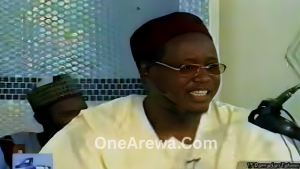
Sheikh Ja’afar Mahmud Adam Clash with Authorities and Political Views
As Sheikh Ja’afar Mahmud Adam’s voice grew louder and more influential, so did the tension between him and the political elite.
Unlike many clerics who avoided controversial topics, Sheikh Ja’afar used his pulpit to boldly criticize government corruption, injustice, oppression, and the failure of leaders to uphold Islamic values.
His sermons were not only religiously enlightening but also politically conscious, as he fearlessly addressed the suffering of the masses and the moral decay of those in power.
In particular, Sheikh Ja’afar became known for challenging northern political leaders who, in his view, were failing both Islam and their people.
He often emphasized that leaders would be held accountable by Allah and must govern with justice, transparency, and fear of God.
His blunt assessments of governors and top officials, especially in states like Borno and Kano, created friction between him and the political class.
Furthermore, his opposition to extremism and his warnings about radical Islamic ideologies put him at odds with militant groups that were quietly gaining ground in the region.
He was one of the earliest prominent scholars to publicly denounce the ideology that would later give birth to Boko Haram, describing it as misguided and dangerous.
This combination of political truth-telling and religious clarity made him a powerful figure but also a target.
His critics, both in political and radical religious circles, saw him as a threat.
There were attempts to silence him, smear his name, and limit his reach, but he continued to preach fearlessly, insisting that his duty was to Allah alone, not to any government or worldly power.
Check Out: Alhaji Faruk Umar Faruk: Everything You Need to Know
Sheikh Ja’afar Mahmud Adam Assassination and Martyrdom
The boldness of Sheikh Ja’afar Mahmud Adam in speaking the truth, regardless of who was affected, ultimately led to his tragic and shocking death.
On the morning of April 13, 2007, while leading the Subh (dawn) prayer at Dorayi Juma’at Mosque in Kano, unknown gunmen stormed the mosque and assassinated him in cold blood.
The attackers shot him multiple times in front of his congregation, causing panic and chaos within the mosque.
The news of his death spread rapidly, plunging millions of his followers into grief and sparking outrage across Northern Nigeria and beyond.
The assassination was widely believed to be politically or ideologically motivated, as Sheikh Ja’afar had made many enemies through his relentless critique of corrupt leaders and his rejection of extremist ideologies.
Despite widespread suspicion and public outcry, no one has been officially prosecuted or held accountable for his murder.
The mystery surrounding his assassination only deepened the pain of his loss and raised questions about whether certain powerful forces were involved.
His death occurred just weeks before the 2007 general elections in Nigeria, a period marked by heightened political tension.
Many believe that his growing influence posed a threat to political actors who feared his words could shape public opinion and disrupt their plans.
Others suspect radical extremists, whose ideologies he had consistently condemned, may have orchestrated the killing.
Sheikh Ja’afar was just 47 years old when he was killed, but he died a martyr in the act of worship, fulfilling his mission of standing for truth and justice till his final breath.
To this day, his grave is visited by followers, and his name is remembered with reverence as a symbol of sacrifice, courage, and unwavering faith in Allah.
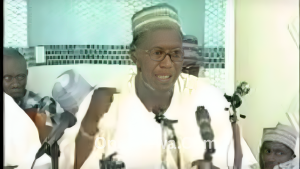
Sheikh Ja’afar Mahmud Adam Legacy and Impact
The legacy of Sheikh Ja’afar Mahmud Adam remains deeply rooted in the hearts of millions across Northern Nigeria and the wider Islamic world.
Though his life was cut short, his voice continues to echo through his recorded sermons, tafsir sessions, and the thousands of students and scholars he inspired.
His messages on pure Islamic monotheism, rejection of innovation (bid’ah), social justice, and fearless da’awah (Islamic propagation) remain relevant and widely referenced today.
His death did not silence his message; rather, it amplified it.
His lectures are still broadcast during Ramadan and Islamic programs, and his audio and video recordings are studied by both students and everyday Muslims seeking spiritual guidance.
He became a symbol of truth, courage, and sacrifice, and many refer to him as a martyr (shaheed) who gave his life upholding the truth.
Among his greatest impacts is the emergence of a new generation of Islamic scholars and preachers who were mentored by him directly or shaped by his teachings. Influential figures such as Sheikh Abdulwahid Gombe, Sheikh Kabiru Gombe, Sheikh Muhammad Sani Rijiyar Lemo, and others often cite Sheikh Ja’afar as a guiding influence in their lives.
Moreover, his stand against extremism has become even more significant in hindsight.
Years after his death, the region was ravaged by Boko Haram, a group whose ideology he had firmly and publicly rejected.
Many believe that had his voice not been silenced, he would have played a major role in combating their spread through intellectual and spiritual counter-narratives.
Today, Sheikh Ja’afar is remembered not only as a scholar but as a reformer, a truth-teller, and a fearless voice for the oppressed.
His life continues to inspire Muslims to seek knowledge, stand for justice, and live according to the Qur’an and Sunnah, regardless of the cost.
Check Out: Alhaji Mohammed Awwal Ibrahim: From Governor to Emir of Suleja – A Full Biography
FAQs
1: Who was Sheikh Ja’afar Mahmud Adam?
He was a renowned Nigerian Islamic scholar, preacher, and reformer known for his fearless da’awah, anti-corruption sermons, and rejection of extremism. He followed the Salafi school of thought and was widely respected across West Africa.
2: When and where was Sheikh Ja’afar born?
He was born on February 12, 1960, in Dorayi, Gwale Local Government Area, Kano State, Nigeria.
3: Where did Sheikh Ja’afar study Islam?
He studied locally in Kano and later graduated from the Islamic University of Medina, Saudi Arabia, one of the top centers for Islamic studies in the world.
4: What made his tafsir sessions so popular?
His eloquence in Hausa, deep knowledge of Qur’an and Sunnah, and ability to address contemporary societal issues with clarity made his tafsir sessions especially popular, particularly during Ramadan at Indimi Mosque in Maiduguri.
5: Why was Sheikh Ja’afar controversial or targeted?
He fearlessly criticized corrupt political leaders, condemned religious innovations (bid’ah), and opposed extremist ideologies, including Boko Haram, which made him a target for both political and ideological enemies.
6: How did Sheikh Ja’afar die?
He was assassinated on April 13, 2007, while leading Subh prayer at Dorayi Juma’at Mosque in Kano. He was shot multiple times by unknown gunmen in what is widely believed to be a targeted killing.
7: Was anyone arrested or convicted for his murder?
No one has been officially arrested or convicted for his assassination to date. The case remains unsolved, and the killers remain unknown.
8: What is Sheikh Ja’afar’s legacy today?
He left behind a library of recorded sermons and tafsir, a generation of students and scholars, and a lasting impact on Islamic reform and public consciousness in Nigeria. His courage, teachings, and martyrdom continue to inspire millions.
9: Did he have any famous students?
Yes. Several prominent scholars in Nigeria today, including Sheikh Kabiru Gombe and Sheikh Muhammad Sani Rijiyar Lemo, were either directly taught by or heavily influenced by Sheikh Ja’afar’s methodology and teachings.
10: Is Sheikh Ja’afar considered a martyr (shaheed)?
Yes, many scholars and Muslims in Nigeria and beyond consider him a shaheed (martyr) because he was killed in the mosque while in a state of worship, standing firm in his duty to speak the truth.
Check Out: The Legacy of Muhammad Rumfa: Personal Life, Power, and Reform in Ancient Kano
In Conclusion
Sheikh Ja’afar Mahmud Adam lived a life marked by devotion, knowledge, courage, and truthfulness.
From his humble beginnings in Dorayi, Kano State, to his global education in Medina, and his impactful preaching across Nigeria, he remained committed to calling people to the pure teachings of Islam based on the Qur’an and Sunnah.
His unshakable stance against corruption, innovation, and extremism made him a beacon of light in a time of confusion, and a voice of truth that resonated with both scholars and the common man.
Though his life was brutally ended in 2007, his martyrdom only solidified his place as one of the most respected Islamic reformers in modern Nigerian history.
His teachings continue to educate, inspire, and guide new generations of Muslims, proving that true legacy is not measured by years lived, but by the light one leaves behind.
Sheikh Ja’afar’s name will forever be remembered as a symbol of fearless da’awah, martyrdom in the path of Allah, and unwavering devotion to truth.
Check Out: Muhammad Yunfa: The King Who Tried to Stop Usman ɗan Fodio – And Lost a Kingdom
Check Out: Queen Sarraounia Mangou: The African Warrior Queen Who Defeated the French
Check Out: Ado Bayero: The Legendary Emir Who Transformed Kano’s History
